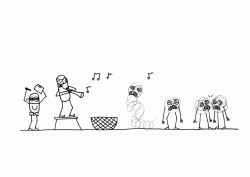FKC – Projects 2023
FIGHT KIDS CANCER (FKC) is a collaborative initiative by KickCancer (Belgium), Imagine for Margo (France), the Kriibskrank Kanner Foundation (Luxembourg), CRIS Cancer Foundation (Spain & United Kingdom), and KiKa (the Netherlands). Our goal is to promote the most innovative treatments through collaboration between academic researchers and the funding of research on paediatric cancer across European countries.
The 9 research projects described below have been selected by independent experts as part of our 2023 European call for projects.
All these projects are presented below in a summary format. If you wish to find out more about these, a detailed description of the research activities is available in English only on the FIGHT KIDS CANCER website. The link to the page of each project is indicated under its short description.
It is thanks to the participation of 2,400 runners in RUN TO KICK 2023 that the following innovative projects were funded:
1/ PATOI: a promising new therapeutic strategy for brain tumours
The PATOI project is a clinical trial that aims at defining the best tolerated dose for the treatment of brain tumours where a new type of drugs, called “PARPi”, which lead to cancer cells death, will be combined to chemotherapy.
Type of study: Clinical trial
Disease: All brain tumours
More information can be found here (in English only).
2/ EurHoly: improving treatments for Hodgkin’s lymphoma
Patients with Hodgkin’s Lymphoma benefit from high cure rates, yet at the cost of very toxic treatments. The EurHoly project aims at improving the risk stratification of patients thanks to biomarkers found in the blood. Ultimately, this will enable doctors to tailor the treatments to the actual needs of each patient.
Type of study: Translational project
Disease: Hodgkin Lymphoma
More information can be found here (in English only).
3/ MedulloDrugs: finding new treatments in medulloblastomas
MedulloDrugs is a project that will accelerate the way we identify new interesting drugs for patients with medulloblastoma. It overcomes the shortcomings of pre-clinical testing in petri dishes, which do not capture the complexity of a disease and the slowliness of mouse models, by using a new technique called “organoids”. Organoids are miniature replications of human organs and it enables researchers to test more drugs in a more reliable fashion.
Type of study: Translational project
Disease: Medulloblastoma
More information can be found here (in English only).
4/ EpiTarget-kids: a program to reveal the vulnerabilities of infiltrating brainstem glioma
This project aims at overcoming the lack of appropriate in-vitro models recapitulating with accuracy the characteristics of DIPGs thanks to the use of organoids, miniature replication of organs. It will specifically attempt to identify epigenetic dependencies and vulnerabilities of DIPGs.
Type of study: Translational project
Disease: Diffuse intrinsic pontine glioma (DIPG)
More information can be found here (in English only).
5/ ATG4TALL: a preclinical testing platform to improve the treatment of resistant T-Type acute lymphoblastic leukemia
This project brings together 200 patients with T-ALL per year, which creates brings together a critical number of patients’ samples to improve our understanding of T-ALL resistance mechanisms. It will analyse changes in genes and proteins in resisting T-ALL cells and develop a test platform to determine which combinations of existing drugs will be effective to treat patients with T-cell leukaemia.
Type of study: Translational project
Disease: Type T acute lymphoblastic leukaemia
More information can be found here (in English only).
6/ Encourage: cure more glioma
This study aims to understand the development of drug resistance during treatment and optimise the current standard tumour profiling approaches to increase detection of drug-resistant cells. Researchers will sequence the tumour at a single-cell level. This will help to understand how, within a tumour, different cell populations reprogram their survival strategies to escape targeted therapies.
Type of study: Translational project
Disease: Glioma
More information can be found here (in English only).
7/ Skeletal late effects: understanding and preventing the side effects of radiation therapy
This project will focus on skeletal late effects caused by radiotherapy, which can be painful and debilitating when they are severe. For this project, researchers will develop state-of-the-art models to understand the underlying causes of radiation damage to the growing skeleton and test strategies to prevent the development of skeletal late effects.
Type of study: Translational project
Disease: All tumours
More information can be found here (in English only).
8/ Remodelling: making immunotherapy effective for brain tumours
So far, brain tumour patients have not benefited from the same advances of immunotherapy because of the “blood brain barrier”, which prevents big molecules to reach tumours located in the brains. This project will try to bring immunotherapy agents into the brain tumour, using non-invasive ultrasound waves to open the blood brain barrier.
Type of study: Translational project
Disease: Diffuse Intrinsic Pontine Glioma (DIPG)
More information can be found here (in English only).
9/ BioESMART: confirming the potential of a treatment for Ewing's sarcoma
This project will study samples from patients included in a closed clinical trial where an IGF-1R inhibitor was tested to identify a biomarker that could tell apart patients that responded from those who did not respond. This project will also use a large panel of new technologies to improve our understanding of the role of IGF-1R in the carcinogenesis of Ewing Sarcoma.
Type of study: Translational project
Disease: Ewing’s Sarcoma
More information can be found here (in English only).
FKC – Projects 2023
- Financed: €4.4 million, €0.8 million of which by KickCancer
More than 85% of your donations go to financing research and supporting our advocacy work, less than 15% go to administration.
- Duration: 2 to 3 years
- Countries: AT, BE, CH, DK, FR, GER, IE, IT, NLD, PT, SE, SP, UK
- Disease: All (brain) tumours, lymphoma, MB, DIPG, T-ALL, glioma, Ewing’s sarcoma
- Status: Ongoing





















